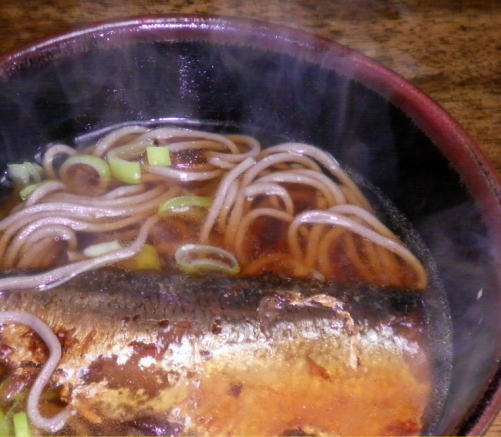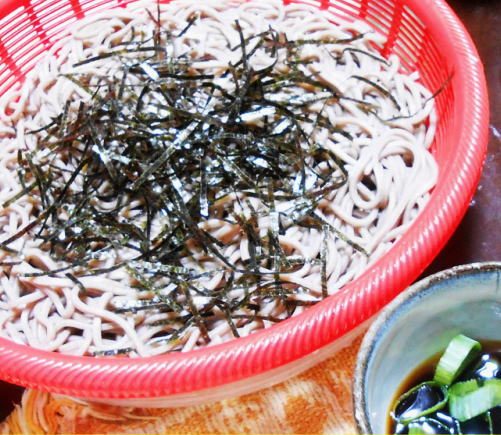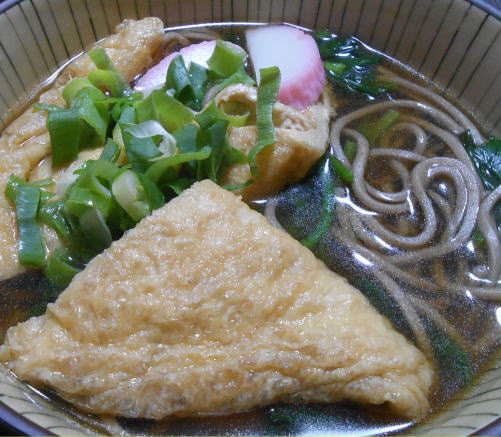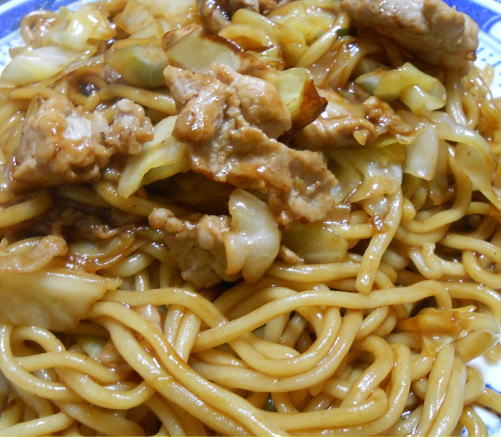Last update September 7, 2025
Japanese Food - Soba -

Soba
そば, 蕎麦
Japanese Buckwheat Noodle
Comprising “elasticity”, “throat sensation”, “resilience”, “texture”, and “aroma”, the delectability of Soba is simply complicated. Yes, it tastes “simple" indeed, but the delicate savour of that simpleness seems unfathomable. At least for non-connoisseurs. Some Soba specialists even say that most Soba noodles served in Japan are fake, or “Sobaoid” (something very much like Soba). But here, let’s take it easy, even if we don’t know about the genuine Soba. It’s OK if we feel it delicious! First, Kake Soba is a plain type with Soba noodles in a hot soup relished with Neghi. Zaru Soba or Mori Soba is a cooled dish served on a bamboo sieve, accompanied by a dip and Yakumi (relish). Other Soba menu items include Tempura Soba with Tempura toppings; Kitsune (a fox) Soba with sheets of sweet-seasoned Abura Aghe; Tanuki (a raccoon dog) Soba topped with Tempura batter crumbs; Tsukimi (full moon-viewing) Soba with a topping of an uncooked egg; and Nishin Soba with dried herring piece, to name a few. By the way, Soba usually refers to noodles made from powdered buckwheat seeds, kneaded with water and cut into thin strips. But, it often includes wheat-based noodles called “Chūka Soba” (the term sometimes refers to Ramen), and the so-called “Yaki Soba” available from food stands also use this kind of noodles.

Steamy Nishin Soba with a seasoned herring piece.
|

Home-made Zaru Soba with Nori threads topping.
|

Tempura Oroshi Soba at a restaurant in Shiga.
|

Home-made Kitsune Soba.
|

Yaki Soba cooked with cabbage and pork ingredients.
|

Takeout Yaki Soba with cabbage, pork and Beni Shoga.
|

Steamy Nishin Soba with a seasoned herring piece.

Home-made Zaru Soba with Nori threads topping.

Tempura Oroshi Soba at a restaurant in Shiga.

Home-made Kitsune Soba.

Yaki Soba cooked with cabbage and pork ingredients.

Takeout Yaki Soba with cabbage, pork and Beni Shoga.
|
|


























